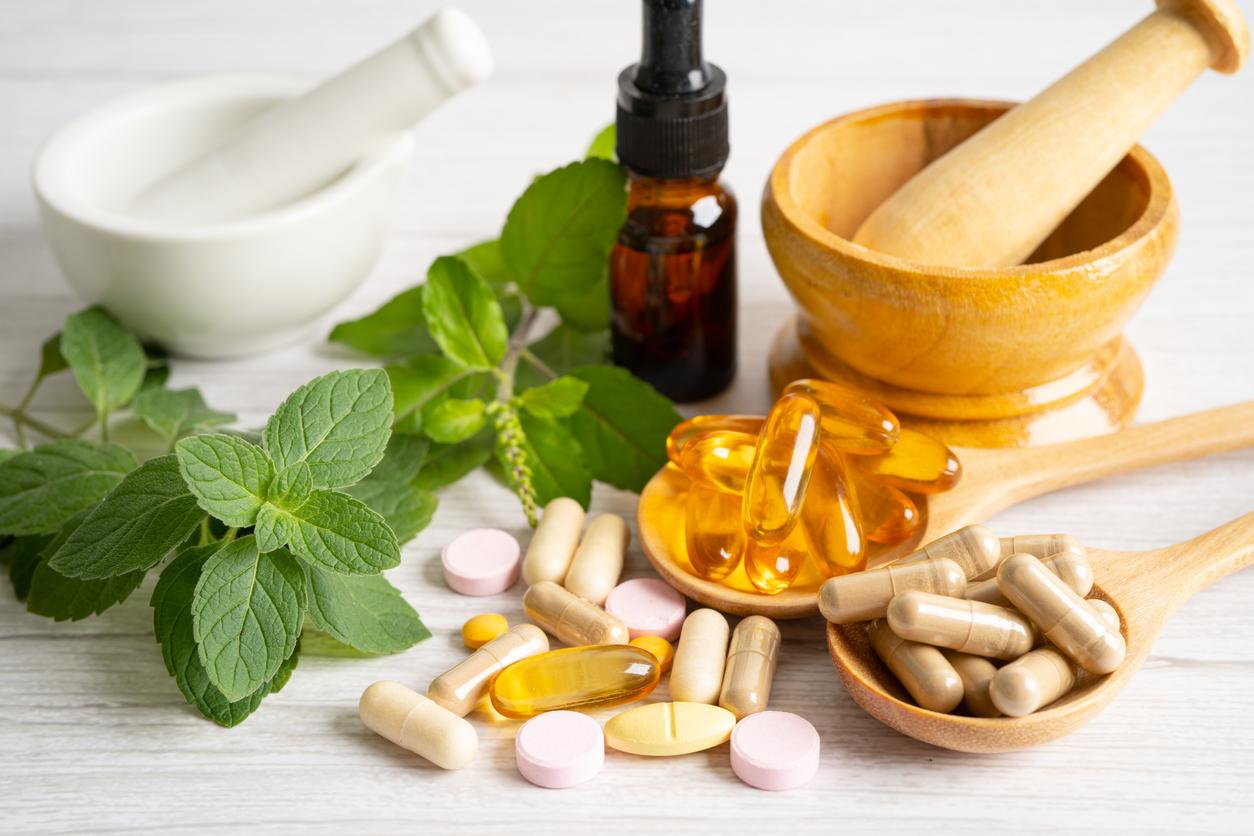Food supplements are presented as good for health but, according to a new study, they are actually hepatotoxic, that is to say harmful to the liver.

- Certain food supplements may have hepatotoxic potential, i.e. cause liver damage.
- These include green tea extract, rooibos, cannabidiol (also called CBD) and turmeric.
- If food supplements are mainly purchased in pharmacies, purchasing on the Internet has grown significantly among adults since 2015, going from 1 to 11%, according to ANSES.
According to the national individual study of food consumption (Inca) 3, conducted in 2014-2015, 22% of adults aged 18 to 79 and 14% of children aged 3 to 17 consume food supplements. These are defined by the Directive 2002/46/EC of the European Parliament, transposed by Decree No. 2006-352 of March 20, 2006 like the “foods whose purpose is to supplement the normal diet and which constitute a concentrated source of nutrients or other substances.”
Rooibos, CBD, turmeric: these substances are said to be hepatotoxic
A new study published in the journal Critical Review in Toxicology points out the hepatotoxic potential – that is to say which causes damage to the liver – of certain food supplements. These include green tea extract, rooibos, cannabidiol (also called CBD) and turmeric. According to this work, there have already been reports about these substances for clinical cases of hepatotoxicity. Toxicology studies have also shown their hepatotoxic nature.
THE authors estimate even though these adverse effects are underestimated due to “misconceptions” which are circulating about the tablets, reputed to be good for your health. For them, the food supplement industry is mainly responsible. They plead for greater transparency for these products and their side effects.
Avoid food supplements presented as miraculous for health
“The consumption of food supplements is not a trivial act, indicates Aymeric Dopter, head of the Nutrition Risk Assessment Unit of the National Agency for Food, Environmental and Occupational Health Safety (ANSES) in this article. Its trivialization leads certain consumers to expose themselves to health risks for uncertain benefit. Far from prohibiting any use of food supplements, ANSES advocates reasoned use, taking into account the real needs of consumers who most often can rebalance their diet by changing their eating habits. In this context, any dietary supplement intake should be discussed beforehand with a healthcare professional.”
To limit the risks induced by the consumption of food supplements, ANSES also recommends avoiding prolonged, repeated or multiple intakes of food supplements, respecting the conditions of use, being vigilant regarding products presented as miraculous and to favor products sold in the best controlled channels. In other words, avoid purchasing food supplements on the Internet which, however, since 2015, have increased significantly from 1 to 11% according to the agency.

















